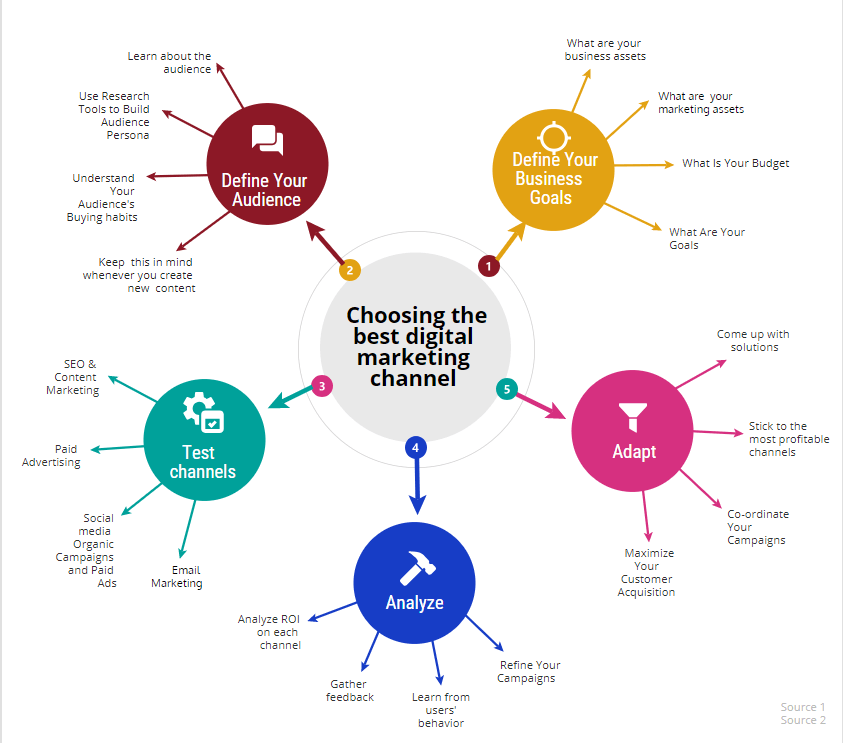This Blog Will Show You About the New Digital Technology in Thailand in 2025 (Updated 2025)
vinay July 9, 2025 0 COMMENTS
Thailand is no longer just a place known for beaches, temples, and street food—it’s fast becoming a hub of digital innovation. From smart cities to AI-driven services, the country is reshaping the way people live and work. This blog will show you about the new digital technology in Thailand, what’s behind its fast digital growth, and how it directly affects you.
Whether you’re a student, a digital nomad, or a curious traveler, understanding these trends can help you make better decisions and maybe even enjoy a smoother trip or lifestyle in the country.
Table of Contents
The Digital Boom: This Blog Will Show You About the New Digital Technology in Thailand
Thailand’s digital movement started with a national plan called “Thailand 4.0,” aiming to move the country beyond traditional farming and manufacturing. The idea is to use digital innovation to boost the economy and make everyday services more efficient.
Government agencies like DEPA (Digital Economy Promotion Agency) are rolling out nationwide programs to support tech adoption across healthcare, education, agriculture, and transportation.
Thailand’s digital economy is already valued at over $140 billion and is expected to keep growing quickly over the next few years. From 5G coverage to online government services, Thailand is shifting its foundations towards a tech-based model. The aim is not just innovation, but convenience—bringing tech benefits to both city residents and those in rural areas.
How Is Technology in Thailand?
Technology in Thailand is growing fast and becoming a part of everyday life. You’ll see 5G in big cities, QR code payments at local markets, and mobile apps for healthcare, shopping, and even transport. From students using e-learning to farmers getting advice from chatbots, digital tools are everywhere. This blog will show you about the new digital technology in Thailand by highlighting how it’s helping both city and rural life become more connected and efficient.
Cutting-Edge Tech Infrastructure: The Backbone of Progress
Thailand’s digital growth wouldn’t be possible without a strong infrastructure. The country leads Southeast Asia in 5G rollout, especially in major cities like Bangkok, Chiang Mai, and Phuket.
Cities now use this connectivity to power smart services. Chiang Mai monitors air quality using real-time sensors. Phuket’s waste system uses AI to manage garbage more efficiently.
Cloud services are booming too. Google, AWS, and TikTok are investing in data hubs across Thailand, turning it into a regional base for cloud computing and content delivery.
What Is the Digital Strategy of Thailand?
Thailand’s digital strategy is guided by a national roadmap called “Thailand 4.0”, which aims to shift the country from a manufacturing-based economy to an innovation-driven one. At the heart of this plan is a goal to turn technology into a core tool for public welfare, economic growth, and education.
The strategy focuses on several pillars:
- Smart infrastructure: Boosting 5G rollout, building data centers, and improving cloud access
- Digital economy: Encouraging startups, fintech, and e-commerce to grow the GDP share of digital businesses
- Government digitalization: Making public services faster and accessible through online platforms
- Cybersecurity and privacy: Implementing policies like the PDPA (Personal Data Protection Act)
- Inclusive access: Ensuring rural and underserved communities benefit from tech advancements
One major goal is for digital contributions to make up over 50% of the national GDP by 2030. Agencies like DEPA (Digital Economy Promotion Agency) are leading this shift by partnering with both public and private sectors.
The strategy isn’t just about putting tech in cities. It’s about integrating digital services into healthcare, agriculture, transport, and education—so every citizen, regardless of their location, benefits from progress.
Thailand is not only embracing digital transformation—it’s building it into its future from the ground up.
Smart Cities and Civic Engagement Apps
Thailand is transforming over 100 cities into smart urban zones. These cities use IoT, automation, and real-time data to improve traffic, energy, and public services.
The Eastern Economic Corridor (EEC) is at the heart of this vision. It’s home to smart housing, smart roads, and next-gen industrial zones.
A standout innovation is Traffy Fondue, an AI-powered civic app. It lets citizens report problems like broken streetlights or trash collection delays—right from their phones. Local governments respond faster, and communities stay connected.
Automation, AI, and Smart Living
Artificial Intelligence is now part of everyday life in Thailand. Businesses use AI to manage logistics, offer 24/7 customer support through chatbots, and analyze customer behavior for more personalized experiences.
One powerful example is the LANTA supercomputer, used by universities and research centers to process large-scale data. It supports research in weather forecasting, health, and even public policy planning.
There’s even an unusual but popular use of AI in Thai culture: AI-based fortune telling. Apps now simulate the role of a traditional fortune teller, offering advice and predictions based on your data and preferences.
As you move around the country, you’ll likely use AI without realizing it when you shop online, ask Siri for directions, or get product recommendations on social media.
Fintech Is Changing How People Use Money
Digital finance in Thailand is widespread. Whether you’re buying street food or shopping at a luxury mall, QR code payments are everywhere.
Here’s how it works:
- PromptPay: Link your phone number or ID to transfer money instantly
- Pao Tang Wallet: Access payments, government subsidies, and health services in one app
- Digital Wallet Scheme: ฿10,000 distributed to 45M citizens to promote digital payment usage
Even tourists can use these systems via international cards or mobile apps with English support. It’s quick, safe, and widely accepted.
Online Shopping and Remote Work Are Thriving
E-commerce in Thailand has exploded in recent years. Platforms like Shopee, Lazada, and JD Central have transformed how people shop. Even small vendors now sell through Facebook Live, Line Shopping, or Instagram.
Online retail is expected to hit $53 billion by 2025. But it’s not just about buying—it’s about better experiences. Augmented Reality (AR) fitting rooms, AI-based customer service, and same-day delivery have become standard expectations.
Apps like MuvMi also show how mobility has gone digital. These electric tuk-tuks can be booked through mobile apps in select parts of Bangkok, offering eco-friendly rides at fair prices.
The rise of remote work is another big shift. Thailand’s fast internet and digital services have made it a favorite for freelancers and startups. Whether you’re coding from a café or attending a Zoom call from a beach resort, the infrastructure is there to support you.
Health and Agriculture in the Digital Space
Thailand’s healthcare sector is going digital, too. The Mor Prom app started as a vaccine booking system but has expanded into a full health platform, allowing users to view health records, book appointments, and receive reminders.
Telemedicine is now available in many regions, with doctors offering consultations over video calls. This system is helping cut down on hospital wait times and improving access in remote areas.
In agriculture, the use of AI tools has reached even the smallest farms. An intelligent chatbot on the Line platform answers farming-related questions instantly. Farmers use it to get advice on crop cycles, diseases, and fertilizers—saving time and improving output.
This smart approach is making rural life more efficient and sustainable.
How People Are Adapting: Cultural Shifts and Digital Habits
Young people in Thailand are especially quick to adapt to tech. They use their phones for everything social media, payments, shopping, job hunting, and even entertainment like streaming or gaming.
Their behavior is shaping the market. Companies now focus on mobile-first platforms, with features like dark mode, voice search, and fast-loading interfaces.
Even traditional customs are going digital. As mentioned earlier, AI-powered fortune-telling apps are replacing face-to-face consultations for many. It shows how Thailand blends its culture with modern tech rather than replacing it.
Digital education is also on the rise, with students using YouTube, e-learning platforms, and virtual tutoring for school and language learning.
Not Everything Is Perfect: Risks You Should Know
With all this progress comes some concern. Cybersecurity is one of the top risks. As more services collect personal data, the risk of hacking or data misuse increases.
Thailand introduced the Personal Data Protection Act (PDPA) to tackle this issue. But some organizations still need better systems and training to apply it properly.
There’s also the matter of digital inequality. Not everyone has fast internet or access to smartphones. Rural communities, elderly citizens, and low-income families sometimes get left out of digital services.
And with automation, there’s a risk of job losses in certain sectors. Cashiers, call center agents, and other roles are being replaced by machines or apps. That’s why training and reskilling programs are becoming important across the country.
What This Means For You
No matter who you are, Thailand’s digital development will affect your experience. If you’re a student, you’ll have access to better learning tools. If you’re an entrepreneur, the digital payment systems and online platforms offer low-cost ways to grow.
As a tourist or resident, you’ll enjoy smoother transport, easy mobile payments, and faster services. Even everyday things like paying bills, booking appointments, or reporting a broken streetlight are now possible from your phone.
This is no longer a country playing catch-up—it’s one that’s setting the pace in Southeast Asia. This blog will show you about the new digital technology in Thailand, and how it’s becoming a part of normal life, not just in big cities but everywhere.
Final Words
Thailand is writing its digital story one upgrade at a time—from 5G streets and AI assistants to virtual classrooms and digital wallets. This blog will show you about the new digital technology in Thailand, not as something distant or complicated, but as tools people use every day.
If you’re thinking about visiting, working, studying, or investing in Thailand, now is the time to take a closer look. The country isn’t just going digital—it’s doing it in a way that includes you.
Let me know if you’d like a catchy meta description and social media preview text for this post!
Frequently Asked Questions
Q1. What is Thailand 4.0?
It’s a national plan to boost digital innovation in areas like healthcare, education, and the economy.
Q2. Can tourists use digital payments in Thailand?
Yes, tourists can pay using QR codes, international cards, and apps with English interfaces.
Q3. How is AI used in Thailand?
AI is used in apps, customer service bots, transport, healthcare, and even fortune-telling tools.
Q4. Is it safe to use digital apps in Thailand?
Yes, most platforms are secure and follow PDPA laws, but users should stay cautious online.
Q5. Why is Thailand good for remote workers?
It offers fast internet, mobile services, co-working spaces, and affordable tech-friendly living.
RELATED ARTICLES
Latest Articles
 Why The People Next Door Might Be Costin…In Business
Why The People Next Door Might Be Costin…In Business The Taste of Tradition, Delivered to You…In Technology, Tips
The Taste of Tradition, Delivered to You…In Technology, Tips What to Write in a Wedding Card for Frie…In General
What to Write in a Wedding Card for Frie…In General how2invest com mx: Beginner’s Guide to S…In General
how2invest com mx: Beginner’s Guide to S…In General Effortless Material Handling Solutions: …In real estate
Effortless Material Handling Solutions: …In real estate How the Snapchat Best Friends List Actua…In General
How the Snapchat Best Friends List Actua…In General Famous Celebrities with Noonan Syndrome …In General
Famous Celebrities with Noonan Syndrome …In General How Do You Create a Proxy ServerIn Technology
How Do You Create a Proxy ServerIn Technology
stopie.com is a participant in the Amazon Services LLC Associates Program, an affiliate advertising program designed to provide a means for sites to earn advertising fees by advertising and linking to Amazon.com.
Clicking on an Amazon link from stopie.com does not increase the cost of any item you purchase.
We will only ever link to Amazon products that we think our visitors may be interested in and appreciate learning more about.





